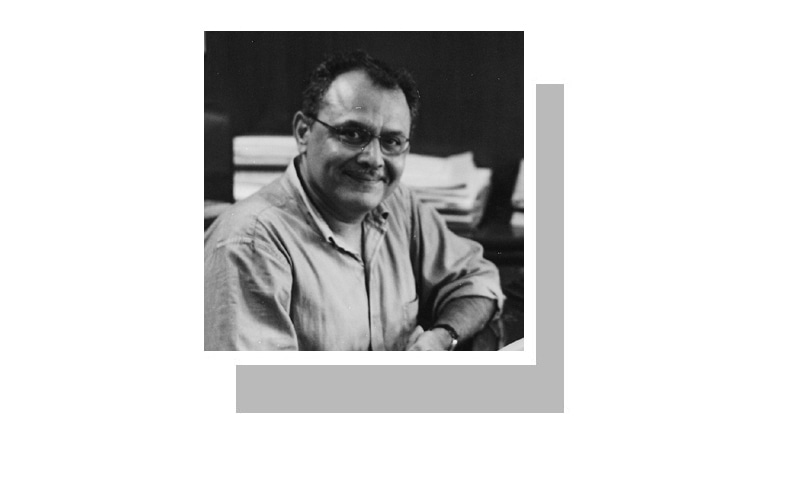
DEC 16 has become a source of multiple reminders of the ability of Pakistanis, or let’s say the handful in charge of deciding the nation’s destiny, to cause infinite self-harm.
What each one of us is great at is hurling accusations at the other and passing the buck. Nobody ever takes responsibility for any debacle or tragedy. Be it the events and actions that led up to Dec 16, 1971, when half of Pakistan ceased to be or Dec 16, 2014, when we saw bloodthirsty gunmen killing over 100 of our schoolchildren in the name of faith in Peshawar.
The fact that, 45 years on, we know as much about the causes of the tragedy that saw the country’s more populous part separating from the Western wing to become Bangladesh as we knew back then, is a classic example of how nobody has ever felt the need to learn any lessons from our own history.
We seem determined to ignore our past follies and do not allow anything to be learnt from our own bitter experiences.
Why the report of the Hamoodur Rehman Commission, set up to inquire into the debacle, was never made public by successive governments, ranging from democratically elected to dictatorial to quasi-civilian, is anybody’s guess.
That some excerpts were leaked in 2000, some 30 years after the darkest day in the country’s history, is neither here nor there. Who knows, if the country had access to a more credible and detailed version of the report, it could have saved itself considerable pain whether in Balochistan and then NWFP in the 1970s or Sindh in the 1980s or more recently in Balochistan again.
We seem determined to ignore our past follies and do not allow anything to be learnt from our own bitter experiences. Look at the demand of many of the parents of students slaughtered at the Army Public School on Dec 16, 2014. They have been vociferously calling for a judicial inquiry into the tragedy, but to no avail. One wonders why we are so scared of facing the truth that a legitimate demand is met by obstinate official silence. Perhaps there are fears some sacred cows may face censure.
Then there are those who say what’s the point of a forming a commission because when a country is facing terrorism on a scale as big as in 2014, there is no fool-proof security as terrorists will find one ‘soft’ target or the other.
My answer to such arguments is straightforward: Fair point, but unless we examine or inquire into such tragedies in an open, transparent manner and learn from both our failings and the modus operandi of the terrorists, how will we ever evolve the mechanism to successfully block their designs?
Against the background of a history of cover-ups and obfuscation, there cannot be enough respect expressed for the efforts of Supreme Court Justice Qazi Faez Isa, who formed the one-man judicial commission ordered by the apex court to probe the massacre of lawyers in Quetta in August this year.
Ironically, Justice Isa’s report contains no startling revelations. Even then, it is gratifying to see in print the litany of state failures that has left Pakistan reeling in the face of the onslaught by terrorists, hate preachers and others who propagate divisive ideologies. Gratifying, because it reinforces what so many right-thinking Pakistanis have been saying for a long time now.
The report, which I hope all literate Pakistanis read (Justice Isa expressed regret he couldn’t issue an Urdu translation simultaneously for want of time but recommends that one be made available soon), is both diagnostic and prescriptive.
Where it is a stinging indictment of sections of the media that glorify terrorists and the federal and provincial governments’ shortcomings at many levels, and where it details the abject failure of the interior minister to effectively activate the National Counter-Terrorism Authority, it also questions the command and communication failures within the army-led paramilitary Balochistan Frontier Corps.
The commission, which took 56 days of exhaustive sittings to complete its 110-page report, says that adherence to all laws, including the Anti-Terrorism Act, the Pakistan Penal Code and the Constitution, can restore the country to being a citadel of tolerance and multifaith harmony.
Where Justice Isa is scathing in his report, he goes on to list specific recommendations, which at first glance tell any reader that, if implemented in letter and spirit, they could alter the course of the fight against obscurantism, bigotry and the intolerance and terrorism they breed.
In most democratic societies such a categorical indictment of ministers and functionaries would have led to the rolling of heads. There are already calls asking the interior minister to resign since his position had now become untenable.
I doubt that will happen. We have no such tradition. Despite what the report says about the FC, the force’s inspector-general has already been promoted to lieutenant-general and given command of a corps. For its part, the government might argue that with the proactive last army chief it never felt quite free to run policy.
Perhaps the only casualty of this wide-ranging and well-substantiated indictment will be the provincial police chief, as in our scheme of things he seems the most easily expendable. Recriminations, resignations and sackings aside, I’d be grateful if the recommendations are embraced in right earnest.
The writer is a former editor of Dawn.
Published in Dawn, December 17th, 2016











































